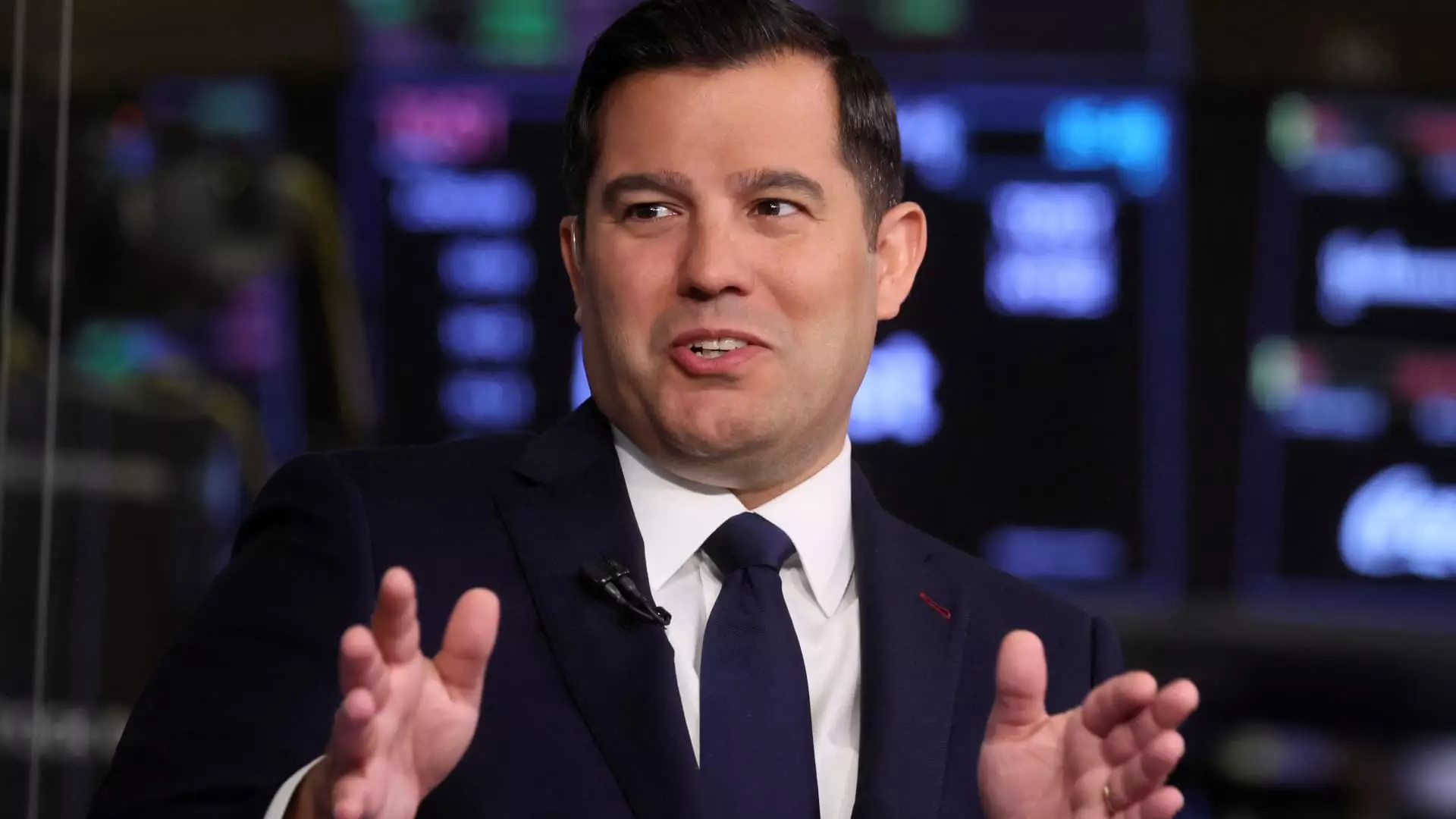Webull’s recent leap of almost 375% within mere days of its stock market debut raises eyebrows and questions in equal measure. While the valuation of approximately $30 billion might excite investors, one must ponder the sustainability of such rapid inflation. The company, which sprang from its merger with SK Growth Opportunities Corp., finds itself standing shoulder to shoulder with giants like Robinhood and E-Trade. Yet, amidst the hoopla, this surge feels less like a victory and more like a precarious balancing act on a tightrope stretched over a chasm of economic uncertainty.
The Dichotomy of Investor Sentiment
We live in turbulent times, shaped by recent economic upheavals, from the aftermath of a global pandemic to spiraling inflation and escalating interest rates. The very nature of investment has pivoted, transforming casual trading into a hyper-competitive arena. Webull claims a user base of over 23 million, a number that sounds impressive at first glance. However, it is essential to question the depth of engagement among these users. Are they informed investors or merely participants riding the coattails of a broader trend? The former Alibaba executive Wang Anquan, serving as the company’s CEO, may paint a picture of intellectual elitism within Webull’s demographic, yet this assertion begs further scrutiny.
Marketplace Challenges and Financial Predictions
In a recent investor presentation, Webull projected a revenue expectation of $390.2 million for 2024, a figure that suggests stagnation when compared to previous earnings. For a company that has recently undergone such meteoric valuation growth, the lackluster revenue prospects raise flags. It poses an essential question: can a business sustain such a lofty market cap while maintaining flat revenue growth? Traditional paradigms of market success rely on ongoing positive trajectories; stagnation could lead to a reckoning, especially in a climate where inflationary pressures are forcing a reassessment of risk in investment portfolios.
The Premise of Popularity: User Base versus User Engagement
The pandemic provided a fertile ground for apps like Webull and Robinhood, with citizens channeling stimulus checks into market investments. This influx of new investors is not a sustainable model, as many begin to realize the difference between speculation and strategic investing. Denier’s assertion that Webull’s users are intellectually superior to Robinhood’s may feed into a narrative of exclusivity and elitism, but such perceptions could quickly crumble once the real metrics of user engagement are scrutinized.
Regulatory Scrutiny Looms Ahead
Adding another layer of complexity, Webull is facing inquiries from the U.S. House Select Committee regarding ties to China, an issue that could become a significant concern in an increasingly polarized political atmosphere. With threats of regulatory crackdowns impacting technology and finance, Webull’s leadership needs to be acutely aware of how public perception ties into its broader viability. While initial excitement may drive valuations up, lasting trust is built on transparency and ethical operations.
This stock surge may initially seem like a milestone, but one cannot ignore the warning signs flashing ahead. The financial landscape remains volatile, and while Webull may bask in the glow of newfound fame, the road ahead could be fraught with challenges that test its resilience and adaptability.

